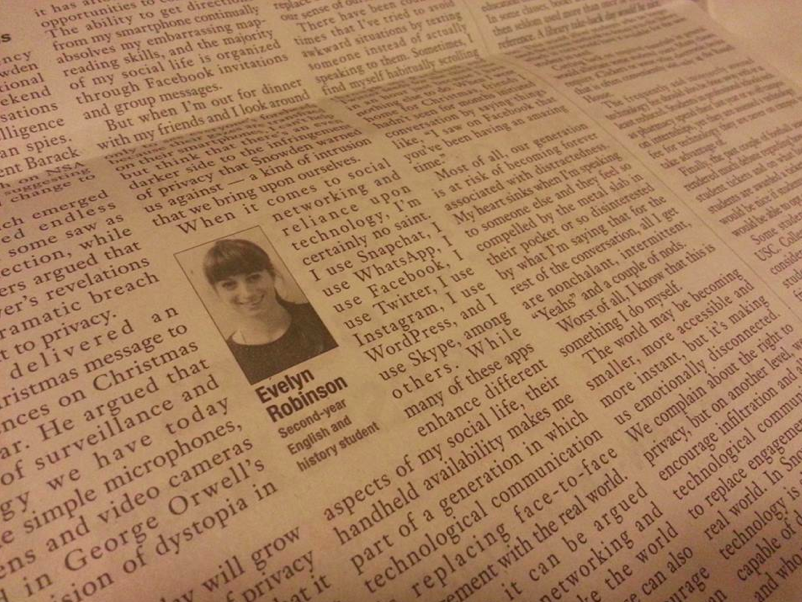Facebook memes typically feature a witty expression or phrase written in two parts, typed over a photograph or image that supports the impact of the punchline. The first meme I ever saw was this popular spin-off from the Lion King, in which Mufasa explains to Simba what lies beyond the light, at the ‘shadowy place’.
Memes have become so widespread that you can create your own meme on a number of meme-generator sites. So instead of the above meme reading ‘The South’, you could insert anything you like, from ‘MacDonalds’, to ‘Malia’.
At best, a meme is a witty quip about some aspect of modern life. But most of the time, people use memes as a way to quickly justify and validate bad decisions or cheap shots at other individuals and groups. For example, the ‘People of Wal Mart’ page has over 25,000 likes on Facebook and is full of memes, but when you think about it, the page is a seriously creepy collection of photos taken of people unawares in order to make fun of their appearance.
There’s something about memes that have social media users hypnotised. Whether it’s the typeface or the supporting image or a combination of the two, memes seem to make hurtful statements acceptable and imbue flimsy observations of daily life with substance. In many cases, if you heard a stranger utter the same words out loud in a restaurant, you’d feel inclined to move tables.
When it comes to gender, sexuality, dating and modern relationships, memes tend to promulgate the gender binary, lock women into double standards, portray all men as chauvinists and relationships as some kind of unhealthy fated fairytale.
There are a select number of popular memes that I keep seeing again and again over Facebook, Twitter and Instagram that really grind my gears because they romanticise harmful and polarising messages about gender. Without further ado, here are 5 popular Facebook memes that have crept all over the Internet and done exactly that:
I also like the idea,
That someone, somewhere, had just broken up with their partner and made this meme to justify their dating status.
I’m sure many people all over the world ‘like’ the idea of soulmates but this meme promulgates the fantasy that modern relationships are like Disney films. In reality, there may well be one person you can spend your life with, but it takes hard work, co-operation, sacrifice, patience, acceptance, humility, negotiation and maturity to make a life-long relationship work with anyone. This meme typifies everything that is wrong with expectations of modern dating, thanks to happy-go-lucky sitcoms and chick-flicks.
If a guy sleeps with ten women, he’s a stud. If a woman does the same, she’s a slut. This is one of the most tired double standards in the history of sexism that’s yawning so hard its jaw hurts. But this meme expresses the prejudice through a viral image, which re-inflamed the toothache like never before. A woman is not a territorial conquest. She is a human being.
I’d much rather be understood than loved, thanks mate
I’ve seen so many women and girls re-post this meme on social media sites. I’m not sure if it’s suggesting that women are so complex that it’s easier to just love them, or that women are simply not worthy of human understanding, but either way, it traps women in a binary. The fact that the quote originates from Oscar Wilde does nothing for me. Literary prowess aside, Wilde lived in a time when women’s status was entrenched within economic, political and social barriers that do not exist now, so the fact that the quote has been re-generated via memes in a modern context is completely anachronistic.
I like to think of myself as a kind of straightforward, reasonable person who means what I say, but the Internet has other ideas. Apparently, because I am a woman, my vocabulary is imbued with double-meanings that send warning signals to men everywhere. I am so truly complex and manipulative, that men have created memes to help other men figure out what I might mean. Huh, who knew?
I saw this meme on Instagram and felt how much of the nation felt while watching Nick Griffin on Question Time- there are so many aspects of it that incense me that I don’t know where to begin. The concept of ‘gentleman’ and ‘lady’ teeter upon archaic, chivalric expectations of behaviour based purely upon gender. I would much rather that somebody held the door open for me because it is polite, not because I’m a woman. If society, meme-users or a man believes that it is his entitlement to ‘smack my ass’ when I have walked through that door because I am ‘his’, then they’ll be met swiftly with a door to the face. Some gent.







Up-and-coming women’s magazine is turning heads in Liverpool
27 AugAs a long-established blogger and columnist, I’ve managed to pester enough magazines, websites and PR companies to publish my writing over the years. Many students looking to elbow their way in to the blogging world and boost their CVs often ask me for recommendations for who they could submit their work to. I’d like to endorse an up-and-coming women’s magazine in Liverpool that showcases a whole variety of women’s artistic creations.
Heroine Zine’s lovable logo
Heroine Magazine, affectionately known as Heroine Zine, was set up just over a year ago by two creative writing graduates, Abi Inglis and Phoebe Dunnett, both 22, from Liverpool John Moores University. They publish anything that comments on the female experience and explores the history of women’s culture. The duo don’t just publish work from women, though- as they believe that ingenuity and flair are genderless attributes.
Heroine Zine’s Issue 3
What started as a Summer project at university and has grown into a print magazine that highlights women’s creativity, ranging from poetry, prose, photography, art and articles. The duo have enjoyed numerous successes over the past year, from holding open mic nights in the city centre, gaining a loyal band of worldwide subscribers and even hosting their very own festival in Chavasse Park, Liverpool One.
Abi said: “We’re so passionate about Liverpool and all the fantastic creative projects that are happening here. We love to support the women involved in these and help provide a space where they can create and perform.”
The magazine even has ‘manifesta’ of principles that outlines the wholesome ethos of its editors. Phoebe explained: “We feature all types of creativity that celebrates women exactly as they are. We want to be the type of magazine that doesn’t feature airbrushing, body-shaming or product placements. Just creative ingenuity.”
HeroineFest in Chavasse Park, Liverpool One
HeroineFest in Chavasse Park was a particular highlight for the pair, who brought workshops, discussion groups, stalls and live music to the top of Liverpool One. Many other creative women’s groups from the North West attended the festival, including the Lady Parts Theatre Company, Queen of the Track Zine and a female Beatles tribute band, The Beatelles.
Abi said: “We wanted to celebrate some of the awesome women we know in Liverpool and the North West. It was a great day and we got some fantastic feedback from the public.”
“Having HeroineFest take place in Chavasse Park, a very public space in the middle of Liverpool One, really showed us how open and welcoming people were about the idea of having a women’s arts and culture magazine in the city.”
The editors are now taking submissions for issue 4, which will be published in October. To get in touch, visit facebook.com/heroinemagazine or email [email protected]
Share this:
Like this:
Tags: comment, creativity, culture, feminism, fiction, imagination, Liverpool, magazine, poetry, prose, women, writing, zine